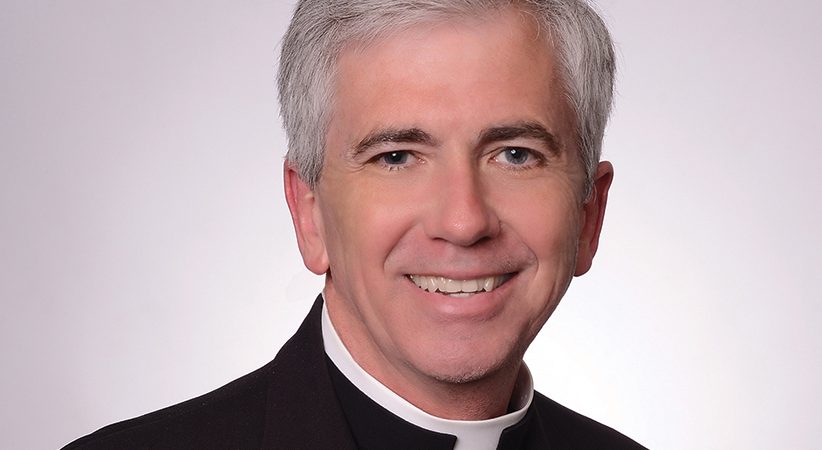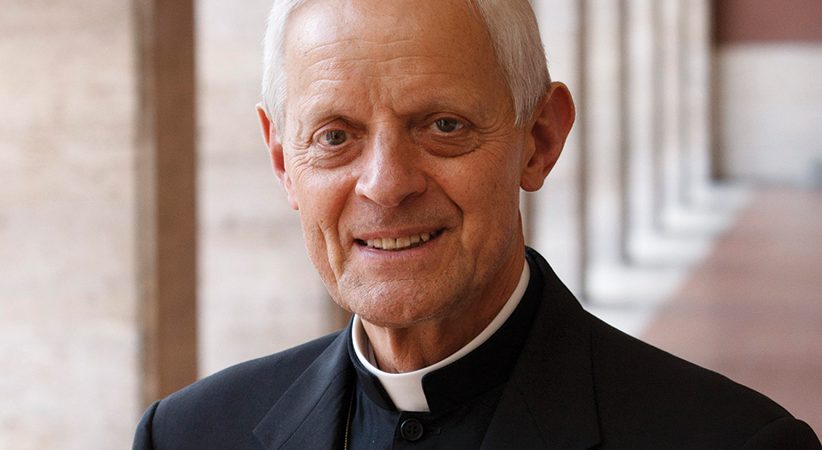Praying the Calendar
Look at the calendar and bring to prayer the entire day
Father Michael Heintz Comments Off on Praying the Calendar
 The title of this article might lead one to think it will offer an invitation to pray more deeply and faithfully the Church’s cycle of seasons and feasts that comprise the liturgical year. That would be a noble and worthy subject. However, the suggestion made here has little, in fact, to do with the liturgical calendar, as beautiful and enriching as that calendar is in priestly and parochial life. Rather, I am referring to that liturgical desk calendar, that day planner or Moleskine, or that electronic calendar you keep on your smartphone.
The title of this article might lead one to think it will offer an invitation to pray more deeply and faithfully the Church’s cycle of seasons and feasts that comprise the liturgical year. That would be a noble and worthy subject. However, the suggestion made here has little, in fact, to do with the liturgical calendar, as beautiful and enriching as that calendar is in priestly and parochial life. Rather, I am referring to that liturgical desk calendar, that day planner or Moleskine, or that electronic calendar you keep on your smartphone.
Every parish priest knows his calendar controls his movements and commitments each day. His days (and often his evenings) are chock-full of meetings, appointments and other obligations that make up his daily routine, which, all too often, is not very routine. In the life of a parish priest, no two days ever really look alike, for in addition to the rotating range of scheduled activities that make demands on his time, he also has to be ready for, open to and capable of contending with the ad hoc or unplanned events that can make just demands on his time — think of the emergency sick call or the parishioner in crisis.
What I would like to propose for consideration is a way of beginning the day by praying our calendar. What I mean is that before entering into prayer for the day, we first look at our calendar, and bring to our prayer the entire day as a kind of offering to God. Looking briefly over the various appointments, meetings, events and sacramental celebrations that will fill our day, let us consciously and intentionally bring them to the Lord.
We know that some of these will be easy, pleasant and even joyful celebrations. We also know that some of the meetings and appointments on the agenda for the day will perhaps be less pleasant and more demanding of our time, patience and emotional energies. Imagine, for example, a staff meeting that promises a contentious discussion; a meeting with the grade school principal and a disaffected parent; a marriage preparation appointment; a penance service at a neighboring parish; a conversation with a woman whose annulment was not granted after a year and a half of hopeful waiting; a deanery or vicariate meeting involving pastoral planning, which often means consolidation or closing; a vigil or wake service for someone who has taken his own life; and the list goes on. Some of these encounters will be easy and others will not, and yet we can bring each of these to the Lord in our morning prayer, offering our ministry to him in advance, and asking his grace to give us the wisdom, prudence and the words that will be grace-filled for those we serve.
This practice is something of a reverse examen, a proactive and imaginative fast-forward of our day, envisioning each moment of the coming day as under the gentle care of the Father and the lordship of his incarnate Son.
St. Josemaría Escrivá wrote of the “heroic minute” — the critical importance of those first conscious moments of our day — and how important they are for charting our course for the day. If our first conscious thoughts on rolling out of bed are, “I dread that meeting this afternoon,” or “parishioner X is so difficult, that appointment will be awful,” we will almost certainly be prophets of our own unhappiness. If, however, we entrust each moment that we will face in the course of the day to the Lord’s providence and ask his grace as we enter into the day, we are likely to be much more intentional, thoughtful, patient and prayerful as the day unfolds. And, unquestionably, more fruitful in our ministry.
Perhaps a simple formula of prayer might be, “Lord, help me to receive this day as your gift … pausing to remembering the particulars on our calendar … and to transform each moment, each encounter, each conversation into joy, and to offer the entire day back to you in gratitude.” As we bring the workday to conclusion with our evening prayer, we can collect the graces, joys and challenges and — having first intentionally received them from God — offer our meager efforts back to him, something we already do, even if only implicitly, at the altar each day. After all, in the living tradition of the Church, just as lauds, its morning prayer, has the tonality of praise, vespers, the evening offering of the Church, is principally an act of thanksgiving.
MSGR. MICHAEL HEINTZ, a priest of the Diocese of Fort Wayne-South Bend, serves as academic dean and director of intellectual formation at Mount St. Mary’s Seminary in Emmitsburg, Maryland.





